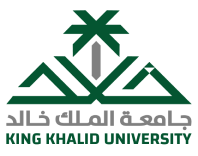من خلال البرنامج سيتمكن الطالب من:
- تحديد وصياغة وحل المشكلات الهندسية المعقدة من خلال تطبيق مبادئ الهندسة والعلوم والرياضيات.
- تطبيق التصميم الهندسي لتقديم حلول تلبي الاحتياجات المحددة، مع مراعاة الصحة العامة والسلامة والرفاهية، بالإضافة إلى العوامل العالمية والثقافية، والاجتماعية، والبيئية، والاقتصادية.
- التواصل بشكل فعال مع مختلف الفئات المستهدفة.
- التعرف على المسؤوليات الأخلاقية والمهنية في المواقف الهندسية واتخاذ قرارات مستنيرة تأخذ في الاعتبار تأثير الحلول الهندسية على المستويات العالمية، والاقتصادية، والبيئية، والمجتمعية.
- العمل بفعالية ضمن فريق، حيث يساهم الأعضاء معًا في تقديم القيادة، وخلق بيئة تعاونية وشاملة، وتحديد الأهداف، وتخطيط المهام، وتحقيق الأهداف المطلوبة.
- تطوير وإجراء التجارب المناسبة، وتحليل البيانات وتفسيرها، واستخدام الحكم الهندسي لاستخلاص النتائج.
- اكتساب وتطبيق المعرفة الجديدة عند الحاجة، باستخدام استراتيجيات التعلم المناسبة.
The program has graduate attributes (GA) which are mentioned below:
GA-1: Scholarship of Knowledge
GA-2: Problem Solving
GA-3: Critical Thinking
GA-4: Usage of Modern Tools
GA-5: Communication
GA-6: Ethical Practices and Social Responsibility
GA-7: Independent and Reflective Learning
GA-8: Research/Investigation Skill
GA-9: Life-long Learning
|
DOMAIN |
PLO code |
Program Learning Outcomes |
ABET Code |
|
|
|
Knowledge and understanding |
|
|
K |
K1 |
Broad in-depth integrated body of knowledge and comprehension of the underlying theories, principles, and concepts in electrical engineering and related discipline |
7 |
|
K2 |
In-depth knowledge and comprehension of processes, materials, techniques, practices, conventions, and/or terminology in electrical engineering |
||
|
K3 |
A broad range of specialized knowledge and understanding informed by current developments in electrical engineering, profession, and related discipline |
||
|
K4 |
Knowledge and comprehension of research and inquiry methodologies |
||
|
|
|
Skills |
|
|
S |
|
Skills (Cognitive skills) |
|
|
S1 |
Apply integrated theories, principles, and concepts in various contexts, related to electrical engineering, profession, and related discipline |
1 |
|
|
S2 |
Solve problems in various complex contexts in in electrical engineering and related discipline |
2, 7 |
|
|
S3 |
Use critical thinking and develop creative solutions to current issues and problems, in various complex contexts, in electrical engineering, profession, and related discipline |
||
|
|
Skills (Practical and Physical skills) |
|
|
|
S4 |
Use and adapt advanced processes, techniques, tools, instruments, and/or materials in dealing with various complex practical activities |
6 |
|
|
S5 |
Carry out various complex practical tasks and procedures related to electrical engineering, professional practice, or related discipline |
||
|
|
Skills (Communication and ICT skills) |
|
|
|
S6 |
Communicate effectively to demonstrate theoretical knowledge comprehension and specialized transfer of knowledge, skills, and complex ideas to a variety of audiences |
3 |
|
|
S7 |
Select, use, and adapt various standard and specialized digital technological and ICT tools and applications to process and analyze data and information to support and enhance research and/or projects |
6 |
|
|
|
|
Values, Autonomy and Responsibility |
|
|
V |
|
Values and Ethics |
|
|
V1 |
Demonstrate commitment to professional and academic values, standards, and ethical codes of conduct, and represent responsible citizenship and coexistence with others |
4 |
|
|
|
Autonomy and Responsibility |
|
|
|
V2 |
Effectively plan for and achieve academic and/or professional self-development, assess own learning and performance, and autonomously make decisions regarding self-development and/or tasks based on convincing evidence. |
5 |
|
|
V3 |
Collaborate responsibly and constructively on leading diverse teams to perform a wide range of tasks while playing a major role in planning and evaluating joint work |
Electrical Engineering Program Learning Outcomes Assessment Report for the Academic Year 2022-2023
 كلية الهندسة
كلية الهندسة